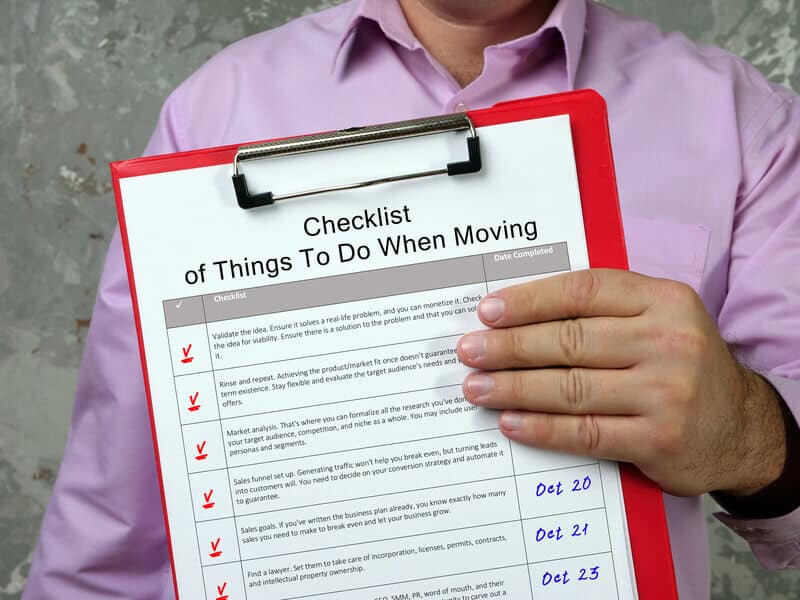1. Research
Before deciding to move to a new place, it’s important to see it for yourself if possible.
Realtor channels on YouTube are also great for quick info about any area.
If you can’t visit in person, having a friend or someone you know who lives there show you around over a video call can be really helpful.
This way, you can get a feel for the area and see if it matches your expectations because sometimes a place might not be what you expect.
2. Check The Commute Times
It’s a good idea to check how long it takes to travel to work, school, or the store.
You can use Google Maps to see travel times from where you might live to where you need to go.
And try checking at different times like morning or evening rush hours (you can set these parameters in Google).
This will help you understand if your daily commute will be quick or if it might take a lot longer during busy times.
3. Safety First
Something fairly important that is often overlooked is crime rates.
You can look up the crime rates for things like theft or violence on a website called spotcrime.com by entering the zip code.
Also, it’s a good idea to use familywatchdog.us to see if there are any sex offenders in the area, especially if you have kids or live alone.
4. Cost of Living
Make sure to check how much it costs to live in a new state, you’d hate to get there and discover you need to make exponentially more income.
You can use websites like bankrate.com to compare how much you need to earn in the new place to live like you do now
For instance, if you make a certain amount of money in one city, you might need to earn more in another city to keep the same lifestyle because it’s more expensive.
5. Purge Your Home
Moving is a good chance to clean out stuff you don’t need anymore.
Start by tackling one room at a time, sorting things into piles to keep, sell, or donate.
This way, you make the process easier, save space, and avoid moving things you don’t use, which can also save you money.
6. Budget for Your Move
Depending on the state, it can get pricey if you want to go far.
Decide if you want to take all of your old things, or start completely new.
Our long-distance moving chart is a great tool for calculating costs.
7. Take Inventory
I suggest making a list of everything you own before you move.
You can keep this list as photos, videos, or even a spreadsheet.
This is really helpful if a long-distance moving company helps you pack and move your stuff.
8. Working Out Your Work
When you’re thinking about moving, make sure you know what’s happening with your job.
If you’re moving because of a new job or a job transfer, that’s good news.
But if you don’t have a job lined up yet, it’s a good idea to start looking for one before you move so that you have money coming in once you get there.
9. Your New Identity
After you move, make sure to quickly update your driver’s license and car registration, as each state has different deadlines, from 10 to 30 days, and you could get fined if you’re late.
Don’t forget to update your address with your car insurance because your rate might change based on where you now live.
You should also change your address online at usps.gov to make sure your mail goes to your new home.
Lastly, update your address with your bank, phone company, and any subscriptions to avoid payment issues.
10. Transfer Utilities
Before you move into your new home, make sure to turn on all the utilities like water and electricity.
You should ask the person selling the home, the landlord, or the property management company about how to get these services in your name before you arrive.
This way, you won’t have any surprises like no running water or electricity when you get there.
Easy Moving Done For You
Ready to make your move stress-free? Visit Pricing Van Lines today to find the best deals and services for your moving needs. Whether you’re moving across town or the country, we help you plan efficiently and save money. Get your free quote now and start your journey with confidence!


